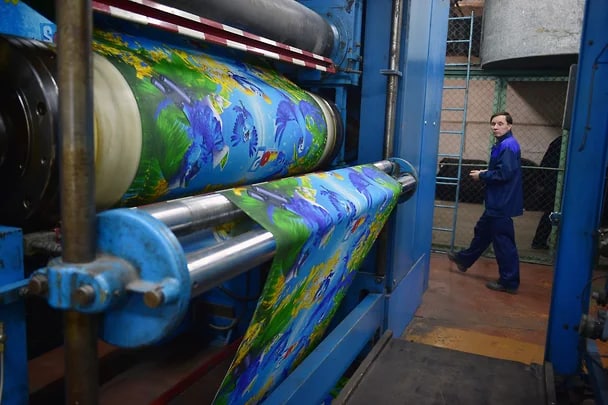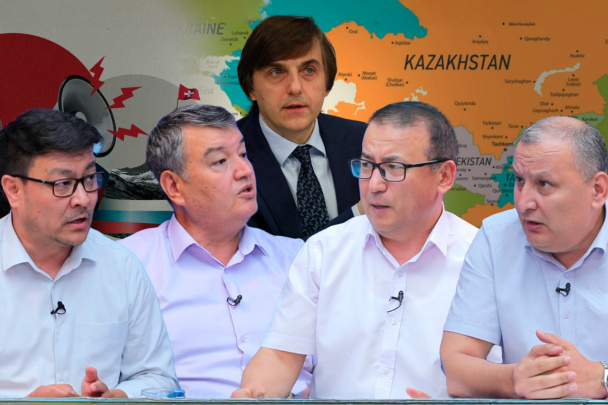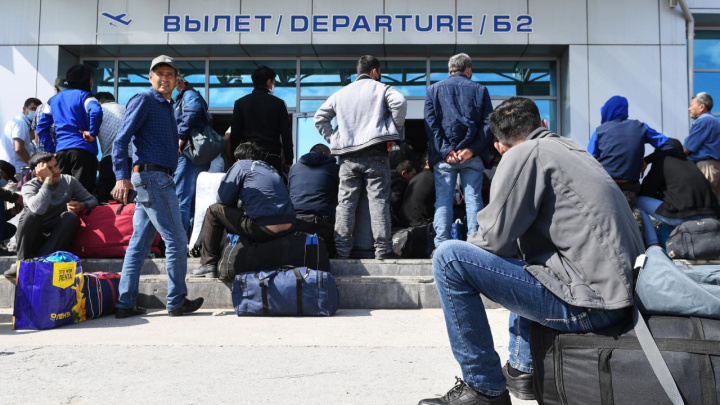Russia canceling limit on quotas for labor migrants from Uzbekistan
According to the decision adopted by the government of the Russian Federation, the procedure of the pilot project, which envisages attracting citizens of Uzbekistan to the Russian labor market, will be fundamentally changed. This is due to the lack of personnel in the wake of partial mobilization in Russia.

Photo: Alexander Miridonov / Kommersant
“Kommersant” writes that the quantitative restrictions for the “pilot” are being removed – until then, the number of Uzbek labor migrants for the construction and agro-industrial complex was set at no more than 11,100 people. The new participant of the project is the Ministry of Industry and Trade of Russia. The Ministry now maintains its own register of light industry employers who are eligible for such employment.
Also, the medical requirements for migrants entering Russia will be reduced – instead of a mandatory test for coronavirus or a document on vaccination, they will have to undergo an examination by Russian doctors in Uzbekistan, and the examination by doctors will be organized by their employers.
On November 10, 2022, the head of the Russian government, Mikhail Mishustin, signed the government’s decision No. 2035. According to it, at the end of 2021, the parameters of the pilot project related to the targeted recruitment of labor migrants from Uzbekistan for the construction and agro-industrial complex sectors of Russia are being changed.
The project, which initially allocated a very small quota, is now expanding. The Ministry of Industry and Trade of the Russian Federation is joining the ranks of “pilot” participants, which will create an opportunity for Russian industrial enterprises to hire citizens of Uzbekistan. It also removes the restriction on the number of Uzbek migrants from the beginning: according to the decisions of the previous government, 10,000 people for the construction sector and 1,100 people for the agro-industrial complex were strictly defined. The Russian government is no longer setting a new quantitative limit for Uzbek migrants.
The inclusion of the Ministry of Industry and Trade of the Russian Federation in the pilot project creates the possibility of hiring workers from the Republic of Uzbekistan by legal entities of the Russian Federation in the field of light industry.
It should be noted that abolition of the special quota for “pilots” has been discussed in the Russian government since spring. At that time, the Ministry of Agriculture of the Russian Federation was the first to declare the need for 38,000 additional seasonal workers in the agro-industrial complex itself. At that time, in the draft decision prepared by the Ministry of Labor of the Russian Federation, it was proposed to abandon the specifics related to the sector, to introduce the project to the entire economy of the Russian Federation. However, the document was not adopted in this version.
Recommended
List of streets and intersections being repaired in Tashkent published
SOCIETY | 19:12 / 16.05.2024
Uzbekistan's flag flies high on Oceania's tallest volcano
SOCIETY | 17:54 / 15.05.2024
New tariffs to be introduced in Tashkent public transport
SOCIETY | 14:55 / 05.05.2023
Onix and Tracker cars withdrawn from sale
BUSINESS | 10:20 / 05.05.2023
Related News

14:01 / 07.07.2025
Two citizens of Uzbekistan sentenced for fighting in Russian army against Ukraine

11:49 / 04.07.2025
Russia officially recognizes Islamic Emirate of Afghanistan, eyes economic cooperation

20:20 / 01.07.2025
“Russia’s colonial past in Central Asia cannot be whitewashed” — Experts reject RF’s ‘shared history’ narrative

19:29 / 28.06.2025



